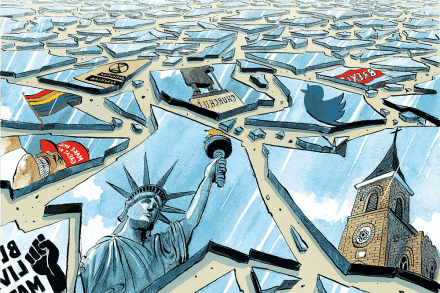The army is too woke for war
Last month, in a two-page letter to colonels of corps and regiments, the Deputy Chief of the General Staff, Lieutenant-General David Eastman, inadvertently exposed the moral confusion, panic even, possessing parts of the British Army. Invited to dine by retired and serving officer members of the private London club Boodle’s, Eastman was dismayed to discover that there were ‘restrictions on the rooms that can be accessed’ by women. In his subsequent letter, he expresses concern that, even in mixed clubs, ‘rules, policies or cultural practices may not align with the army’s commitment to inclusivity’. And so, like Widmerpool in his pomp, he calls for corps and regiments to review their




